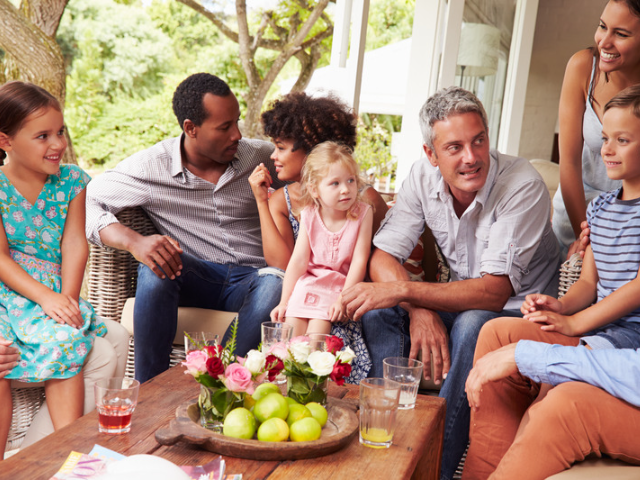Family gatherings can be difficult for children with unique issues. Family gatherings are time for food, family, & fun. Families travel to spend quality time with loved ones. But how do you explain the accommodations your child may need to relatives (whether they are traveling or you are traveling to them)?
7 Steps for Introducing Your Child at Family Gatherings
Have an honest & open conversation about the diagnosis
Have an open conversation with the family about the diagnosis for your child. Talk about the difficulties & needs of your child, but don’t forget to talk about the positive aspects as well. You can also consider providing information in books, professional blogs, etc., regarding the disability of your child. Your family members can then approach you with informed questions about the disability or condition.
Be matter of fact during the conversation
Talk about the science of the condition. Try to limit emotion and emotion. Stick to the facts about the disability. Stating facts is the first step to getting a family to accept a child with a disability or unique need.
Set clear expectations & boundaries
Be honest and clear about the appropriate interaction with your child. You can use the science of the condition to support why you have these expectations in place. For example, if your child can’t eat nuts, explain why this is the case & what would happen if the child ate a nut.
Don’t feel the need to apologize
Your child is fine & there is no need to apologize for the adaptations you have in place. An apology is a regretful acknowledgment of an offense or failure. Your child’s accommodations are not offenses or wrongdoing.
Be prepared for a response
People may make statements out of ignorance without realizing it. You can develop key responses that you can keep in the back of your mind. For example, if someone says, “What’s wrong with your kid” you can be prepared to respond in a positive way. Here is a nice article that provides some great ideas to prepare.
Select an appropriate time to have a discussion at your family gatherings
Pick a day/time in which you & your family members are not overwhelmed or bombarded with everyday life. This may be easier said than done, but it is important to be neutral when discussing your child.
Consider virtual visits instead of live family gatherings
If accommodations can not be made, there is no need to worry or fret. Virtual interactions are possible & there is nothing wrong with selecting this option.




